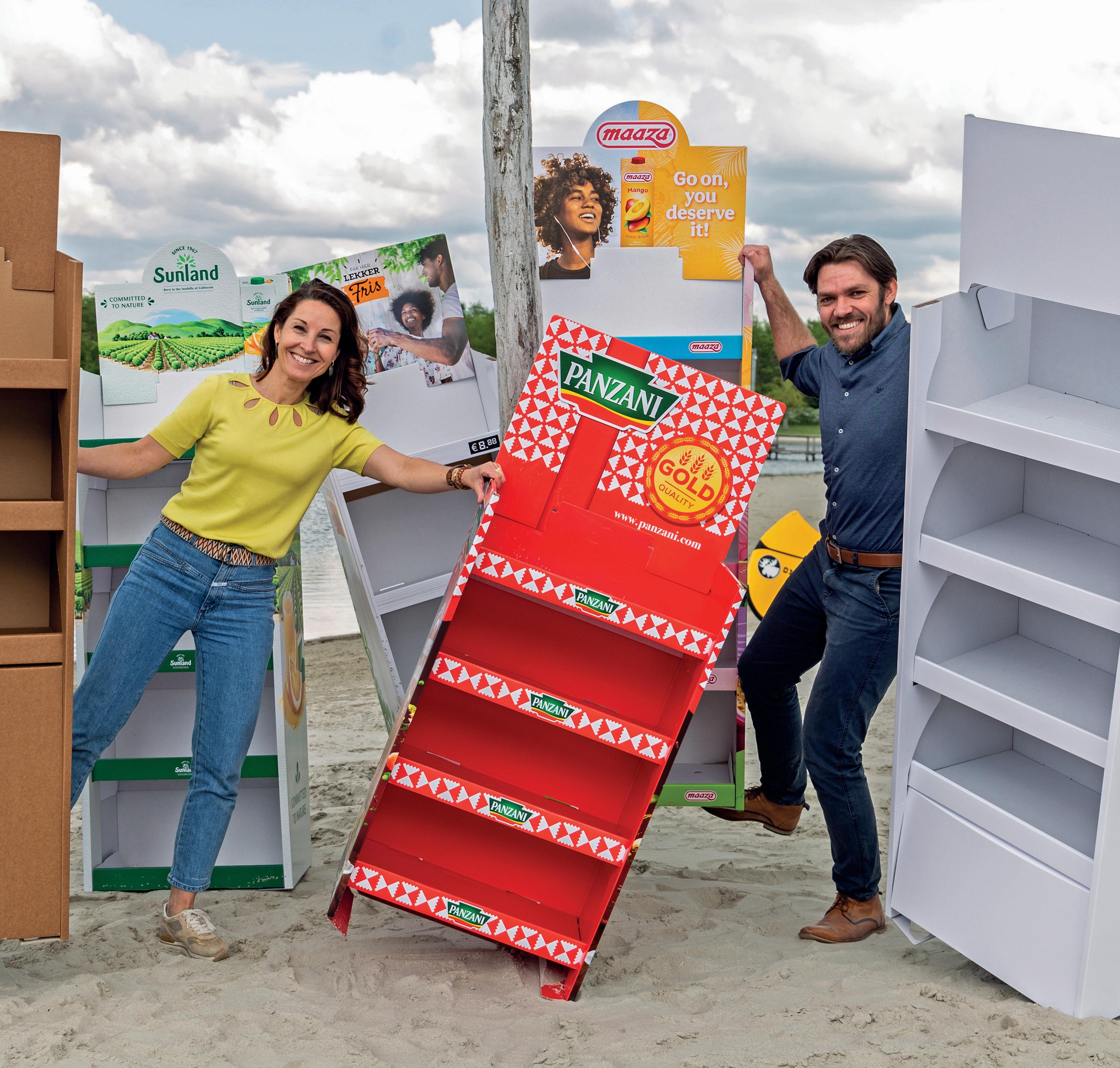
3 minute read
Right. Let’s talk about sustainability
If you regard the world as your family, you should take good care of it. That is exactly what Royal Swinkels Family Brewers does. Family business from Lieshout is committed every day to handing over the brewery to the next generation in a responsible and environmentally friendly way. Sustainability manager Marthijn Juggeburth explains how this affects day-to-day business operations. “The idea is to first save as much as possible and then become more sustainable.”
TAKING RESPONSIBILITY
Beer is a natural product. Raw materials such as barley, hops, water and yeast are used for brewing. Marthijn: “A healthy agricultural sector and clean water are therefore of vital importance to us. Goodquality barley must also be available for the next generation of brewers, for example. This is only possible if we cherish nature and the environment. There will be an increasing scarcity of raw materials due to climate change, so we have to be careful with it. I think that compared to others, the beer industry is perhaps the furthest at this.”
TAKING RESPONSIBILITY
For Swinkels Family Brewers, smart use of raw materials starts with efficient use of water. Brewing beer requires a lot of water, per litre of beer you use four times as much water. If you look at the entire water chain, from the rain needed for barley cultivation to rinsing the beer glasses, you’re talking 150 litres of water per litre of beer. Marthijn: “We take our responsibility and look closely at our use of raw materials. What enters the brewery and what goes out? This is how, for example, the Farmer, Beer, Water project was born. In this project, we use water in the area more efficiently. For example, by cleaning the wastewater from our brewery and feeding it back into the agricultural area. This way, the groundwater level rises, the soil dries out less and we close the circle.”
75% CIRCULAR
Three years ago, Swinkels Family Brewers took a close look at its entire business operations and formulated an am-bitious goal: to become a fully circular company for the next generation. By 2025, the company must be at least 75% circular. In 2020, the counter stood at 52%. “To be able to measure circularity, we developed a calculation method, the Swinkels Circularity Index. The tool has been independently reviewed by KPMG and may also be used by other businesses. We believe that sustainability and circularity can only be achieved together.”
From the moment the objective came into effect, the suppliers had to believe it too. “Our message is: join us on this journey and let’s learn from each other. Initially, there was some reluctance, because some suppliers were afraid the competition would run off with their ideas, but it was nice to see that some suppliers were already ahead of us. Holbox too. They surprised us, because they’d been thinking about this subject for a long time. For example, as the only supplier in Europe, their cardboard displays are made of 100% reusable types of paper and cardboard. The var-nishes are water-based and the ink is made of natural material. It’s nice to see that a supplier looks at sustainability in the same way we do.”
THE FUTURE OF BEER BREWING
The new circular ambition is a logical continuation of the efforts of the past decades. The beer giant has been reducing its energy consumption since 1995. Among other things, by installing 1,500 solar panels on the roof, which should eventually become 15,000. The company is currently investigating whether CO2-neutral operations are possible, without using natural gas. “Until now, we’ve needed gas for brewing for two reasons: electricity and heat. We don’t have an alternative yet, especially for heat, but we’re looking hard. In collaboration with Eindhoven University of Technology, we’re investigating new possibilities, such as incinerating iron powder. That’s a CO2-neutral process. In addition, we and several large businesses are investigating whether it’s possible to generate energy with geothermal heat.” The dream? Martijn doesn’t have to think long about that: “100% circular business operations. That our brewery is part of an ecosystem in which everyone works together and no raw materials are lost. We’re not there yet, but we’re well on the way.”










